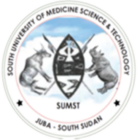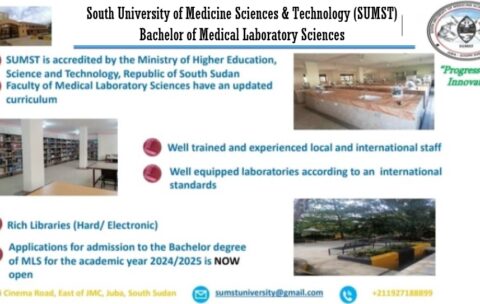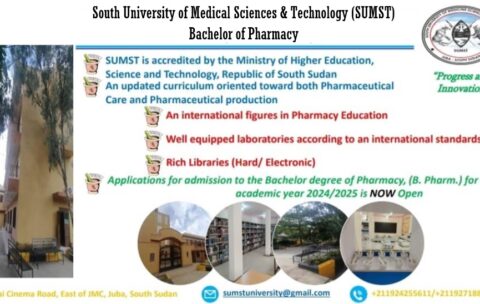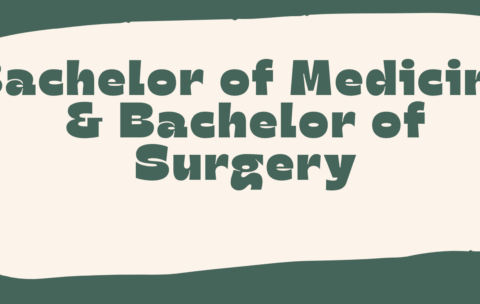Bachelor of Medical Labaratory Science
What you'll learn
Sample Collection and Processing: Learn how to collect, process, and analyze human samples (e.g., blood, urine, tissues).
Laboratory Test Interpretation: Analyze and interpret various laboratory test results to aid in medical diagnoses.
Laboratory Procedures: Understand the principles and procedures of different laboratory tests.
Laboratory Information Management: Manage laboratory information systems to ensure timely and accurate results.
Research Skills: Conduct research to improve human health and develop solutions for medical challenges.
Quality Control: Establish and monitor quality control and assurance programs in the laboratory.
Equipment Maintenance: Learn calibration and maintenance of medical laboratory equipment.
Management Principles: Apply management principles in clinical laboratories.
Professional Conduct: Develop professional attitudes and behaviors, including ethical conduct and teamwork.
Bachelor of Pharmacy
What you'll learn
in a Bachelor of Pharmacy program, students will acquire comprehensive knowledge and skills in various areas of pharmacy and healthcare. Here's a glimpse of what they'll learn:
Core Subjects:
Pharmacology: Study of how drugs interact with the human body, including their mechanisms of action, therapeutic uses, and side effects.
Pharmaceutics: Science of designing and manufacturing dosage forms (such as tablets, capsules, injections) and drug delivery systems.
Pharmacognosy: Study of natural sources of drugs, including plants, animals, and minerals, and their medicinal properties.
Medicinal Chemistry: Chemical aspects of drug design, development, and synthesis.
Clinical Pharmacy: Application of pharmacy principles in clinical settings to optimize patient care and medication therapy management.
Pharmaceutical Analysis: Techniques and methods for analyzing the purity, quality, and concentration of pharmaceutical substances.
Biochemistry: Study of the chemical processes within living organisms that relate to drug action and metabolism.
Microbiology: Understanding of microorganisms and their role in health, disease, and the development of antibiotics and vaccines.
Pathophysiology: Study of the functional changes in the body caused by disease or injury, and how drugs can modify these changes.
Practical Skills:
Laboratory Techniques: Hands-on experience in pharmaceutical labs, including compounding, quality control, and analytical methods.
Dispensing Practice: Training in accurately preparing, labeling, and dispensing medications to patients.
Patient Counseling: Developing communication skills to educate patients about their medications, potential side effects, and proper usage.
Clinical Rotations: Real-world experience through internships and clinical placements in hospitals, community pharmacies, and pharmaceutical industries.
Research Projects: Conducting research to explore new drug therapies, improve existing treatments, or address public health issues.
Bachelor of Science in Nursing and Midwifery
What you'll learn
Antenatal Care: Students learn to provide comprehensive prenatal care, including monitoring the health of the mother and fetus, conducting screenings, and addressing any potential concerns.
Intrapartum Care: The program covers the full spectrum of intrapartum care, from supporting natural childbirth to managing medical interventions when necessary.
Postpartum Care: Students are trained in postpartum care, including assessing the well-being of both the mother and newborn, providing breastfeeding support, and addressing postpartum challenges.
Family Planning and Reproductive Health: The curriculum includes education on family planning, contraception, and reproductive health to support women's overall well-being.
Bachelor of Medicine and Surgery
What you'll learn
Holistic Medical Education: Covering anatomy, physiology, pharmacology, and clinical skills, the curriculum ensures a well-rounded understanding of medical sciences.
Clinical Rotations: Engage in clinical rotations at renowned hospitals, gaining hands-on experience in diverse medical specialties.
Cutting-Edge Facilities: Access state-of-the-art laboratories, simulation centers, and technology to enhance your learning experience.
Global Perspective: The curriculum incorporates international medical practices, preparing students for a globalized healthcare landscape.




